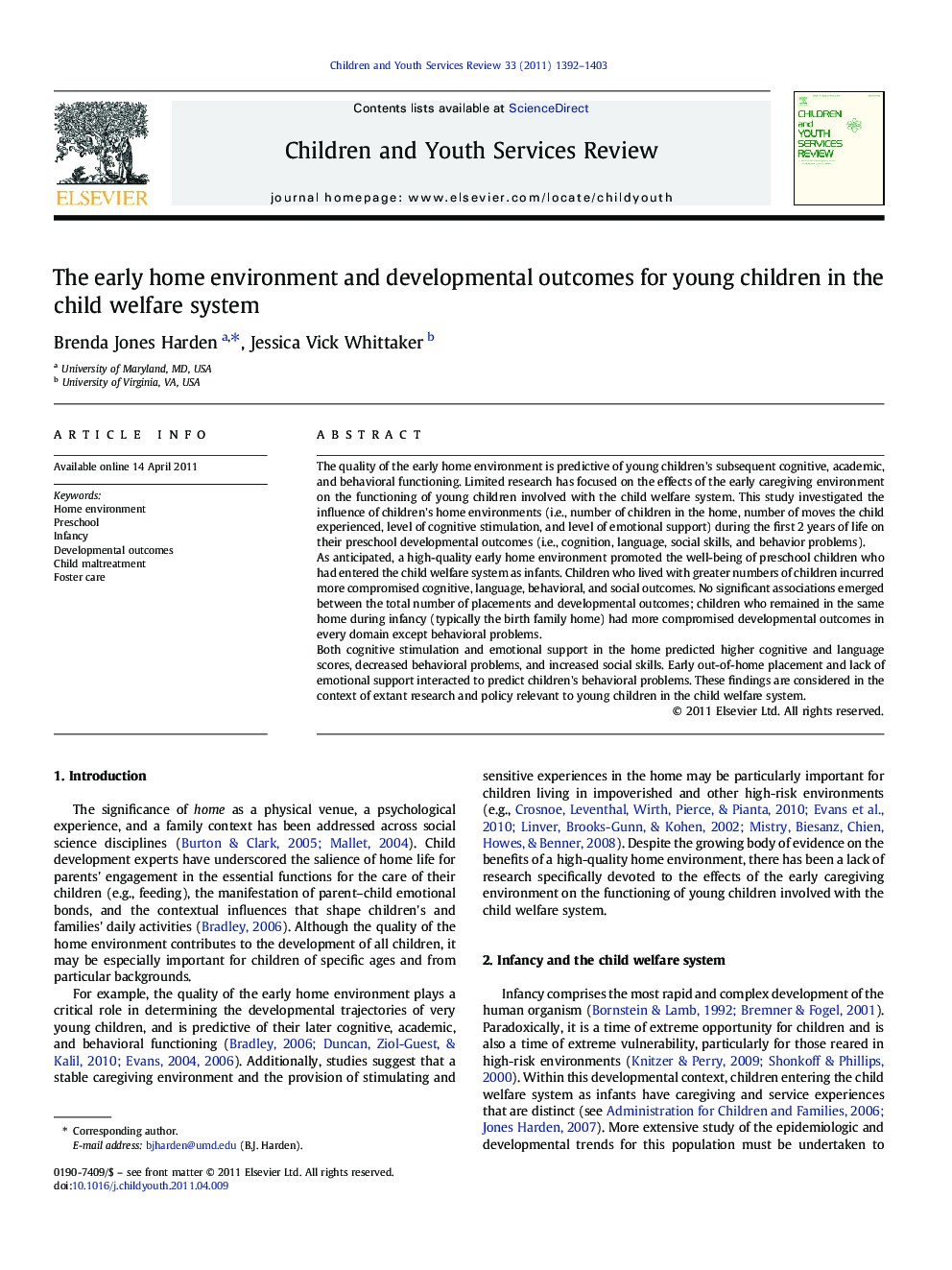| کد مقاله | کد نشریه | سال انتشار | مقاله انگلیسی | نسخه تمام متن |
|---|---|---|---|---|
| 347286 | 617869 | 2011 | 12 صفحه PDF | دانلود رایگان |

The quality of the early home environment is predictive of young children's subsequent cognitive, academic, and behavioral functioning. Limited research has focused on the effects of the early caregiving environment on the functioning of young children involved with the child welfare system. This study investigated the influence of children's home environments (i.e., number of children in the home, number of moves the child experienced, level of cognitive stimulation, and level of emotional support) during the first 2 years of life on their preschool developmental outcomes (i.e., cognition, language, social skills, and behavior problems).As anticipated, a high-quality early home environment promoted the well-being of preschool children who had entered the child welfare system as infants. Children who lived with greater numbers of children incurred more compromised cognitive, language, behavioral, and social outcomes. No significant associations emerged between the total number of placements and developmental outcomes; children who remained in the same home during infancy (typically the birth family home) had more compromised developmental outcomes in every domain except behavioral problems.Both cognitive stimulation and emotional support in the home predicted higher cognitive and language scores, decreased behavioral problems, and increased social skills. Early out-of-home placement and lack of emotional support interacted to predict children's behavioral problems. These findings are considered in the context of extant research and policy relevant to young children in the child welfare system.
Research Highlights
► A high-quality early home environment promoted the well-being of preschool children who had entered the child welfare system as infants.
► Children who lived with greater numbers of children had more compromised cognitive, language, behavioral, and social outcomes.
► Children who remained in the same home during infancy (typically the birth family home) had more compromised developmental outcomes in every domain except behavioral problems.
► Both cognitive stimulation and emotional support in the home predicted higher cognitive and language scores, decreased behavioral problems, and increased social skills.
► Early out-of-home placement and lack of emotional support interacted to predict children’s behavioral problems.
Journal: Children and Youth Services Review - Volume 33, Issue 8, August 2011, Pages 1392–1403